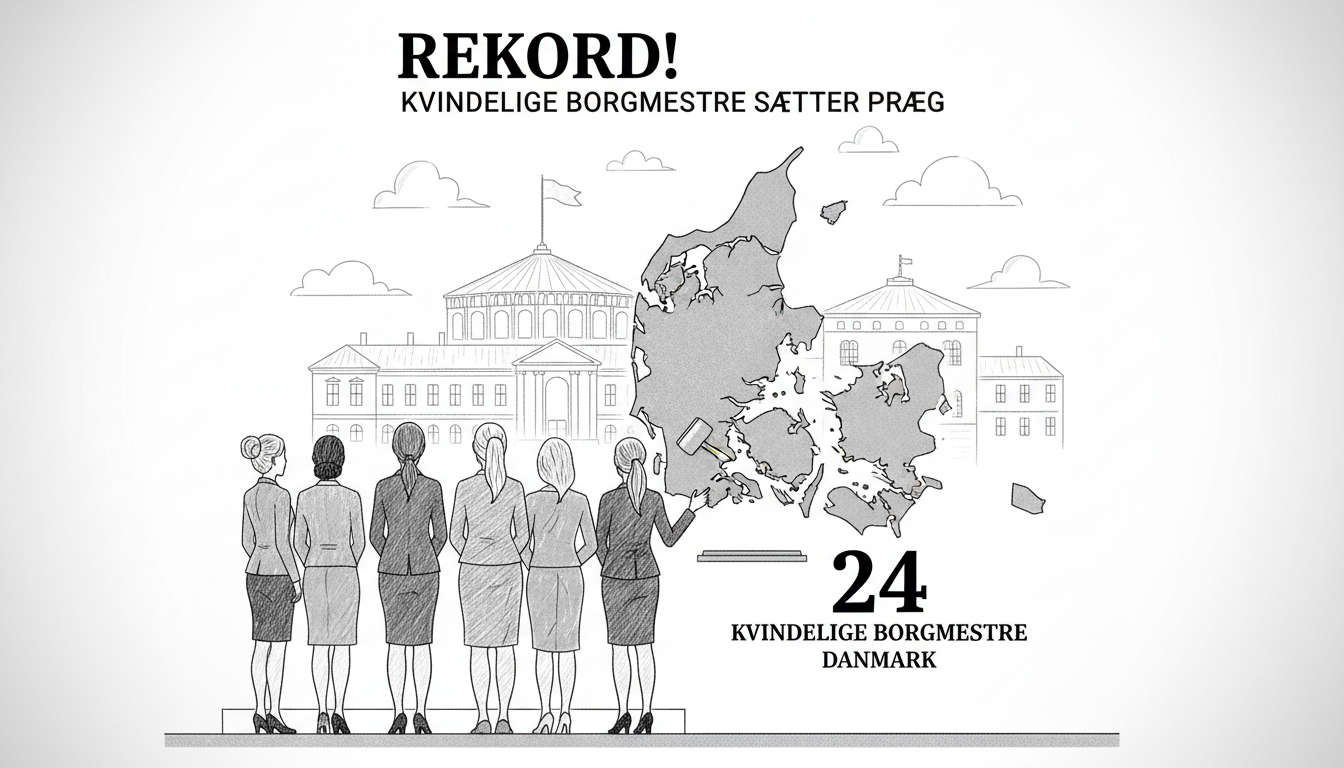Denmark has achieved a historic milestone in local government representation. Voters have elected a record number of female mayors following recent municipal elections across the country. At least 24 municipalities will now have women in their highest leadership positions. This marks a significant increase from previous election cycles and reflects changing political dynamics in Danish local governance.
The current count of 24 female mayors surpasses the previous record of 21 set after the 2021 elections. The number had gradually increased to 22 before election day and reached 23 during the electoral period. Seven municipalities still need to finalize their mayoral appointments through constitutional meetings scheduled for early December.
Local political observers note this trend represents a gradual but meaningful shift toward gender balance in Danish municipal leadership. The increase comes despite Denmark's reputation as a gender-equal society where women's political representation has sometimes lagged behind other Nordic countries. The new mayors represent diverse political affiliations across the political spectrum.
Among the newly appointed leaders, Clara Rao in Allerød and Stephanie Storbank in Billund represent the Liberal Party (Venstre), while Maja Højgaard in Brøndby and Anstina Krogh in Faaborg-Midtfyn come from the Social Democrats. Copenhagen will see Sisse Marie Welling from the Socialist People's Party taking office, marking an important transition in the capital's leadership.
The distribution shows women gaining ground across different regions and party affiliations. Several appointments represent first-time mayors taking office, while others like Stephanie Storbank in Billund and Pernille Beckmann in Greve secured reelection. This mixture of new and returning leadership suggests both continuity and fresh perspectives in municipal governance.
Danish municipal politics operates through a council-manager system where mayors serve as both political leaders and administrative heads. The position requires balancing local constituency interests with national policy implementation. The increasing gender diversity at this level could influence policy priorities and governance approaches across multiple communities.
International readers should understand that Danish municipalities handle substantial responsibilities including schools, elderly care, local infrastructure, and environmental planning. Having more women in these decision-making roles could shape how these essential services develop in coming years. The trend also aligns with broader Nordic patterns of increasing female political representation at local levels.
While the numbers show progress, the real test will come in how these new leaders navigate complex local challenges. Their success or failure could determine whether this record becomes a lasting trend or a temporary peak in women's political representation. The final confirmations in early December will solidify these appointments and set the stage for the next chapter in Danish local politics.

